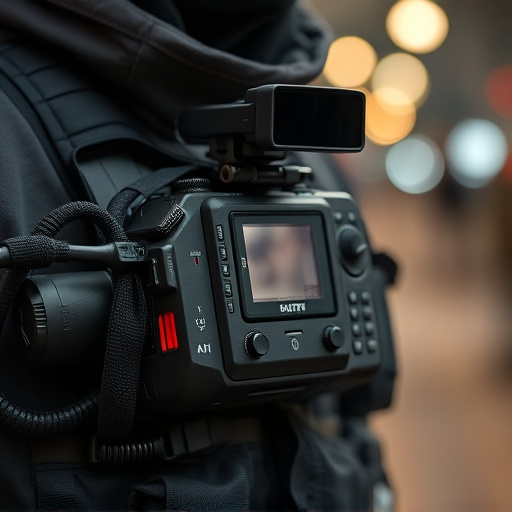Body-worn hidden cameras have become essential tools for personal safety, offering individuals protection in diverse scenarios. Their discreet video and still image capture act as deterrents against threats and provide crucial evidence. Used by law enforcement and solo travelers, these cameras ensure safety and peace of mind with their versatile applications, from high-risk areas to professional settings. However, their use raises legal and ethical debates about privacy rights versus personal security, with regulations varying widely globally.
Personal safety is paramount in today’s world, and technology offers innovative solutions. A body-worn hidden camera stands out as a powerful tool for self-defense and peace of mind. This compact device captures moments that can be pivotal in ensuring your security. This article delves into the intricacies of these cameras, exploring their role in personal safety, various applications, and the legal and ethical considerations surrounding their use. Understanding when and why to employ a body-worn hidden camera could prove invaluable.
Understanding Body-Worn Hidden Cameras: Their Role in Personal Safety
Hidden cameras, specifically those designed for body-worn use, have emerged as powerful tools for personal safety and security. These compact devices offer individuals an extra layer of protection in various situations, from everyday activities to high-risk environments. By capturing video or still images discreetly, body-worn hidden cameras serve as a deterrent against potential threats and provide tangible evidence in case of unfortunate events.
For instance, law enforcement officers often use these cameras to ensure their safety while on duty, allowing them to document interactions with the public and gather crucial evidence. Similarly, individuals who frequently travel alone or engage in outdoor activities can benefit from this technology to protect themselves from unexpected situations. The versatility of body-worn hidden cameras makes them a valuable asset for personal safety, providing peace of mind and an added sense of security.
Benefits and Applications: When and Why Use a Hidden Camera
Hidden cameras, particularly body-worn hidden cameras, offer a range of benefits for personal safety and security. These compact devices can provide crucial evidence in potentially dangerous situations, giving users an extra layer of protection. Whether it’s for self-defence, monitoring personal spaces, or ensuring workplace safety, these cameras are versatile tools. They can be discretely worn as part of clothing or accessories, making them an effective deterrent against potential threats.
The applications of a body-worn hidden camera are diverse. It can be used by individuals who frequent high-risk areas, such as security guards, delivery personnel, or those living in regions with high crime rates. In professional settings, they enhance workplace safety and aid in resolving disputes or incidents. Additionally, these cameras find use in monitoring vulnerable populations like the elderly or children, giving peace of mind to their caregivers. Their ability to capture clear, unaltered footage makes them invaluable for legal purposes, providing tangible evidence when needed.
Legal Considerations and Ethical Questions: Navigating the Use of Hidden Cameras for Self-Protection
The use of body-worn hidden cameras for personal safety raises important legal and ethical considerations. In many jurisdictions, there are strict regulations governing the use of surveillance technology, especially when it involves recording conversations or activities without explicit consent. While some countries allow individuals to carry hidden cameras for self-defense purposes, the rules differ significantly from place to place. For instance, in the United States, certain states have “one-party consent” laws, meaning a person can record interactions with others as long as they are a party to the conversation. However, these laws can be complex, and what may be legal in one state might not be in another.
Ethically, the debate revolves around privacy rights versus personal security. Some argue that body-worn hidden cameras can empower individuals, especially women or those in high-risk situations, by providing evidence in case of an incident. On the other hand, critics raise concerns about potential misuse, invasion of privacy, and the chilling effect it might have on public spaces. The ethical dilemma deepens when considering who has access to these recordings and how they are stored and shared. As technology advances, striking a balance between personal safety measures and safeguarding civil liberties becomes increasingly vital in navigating this modern debate.
